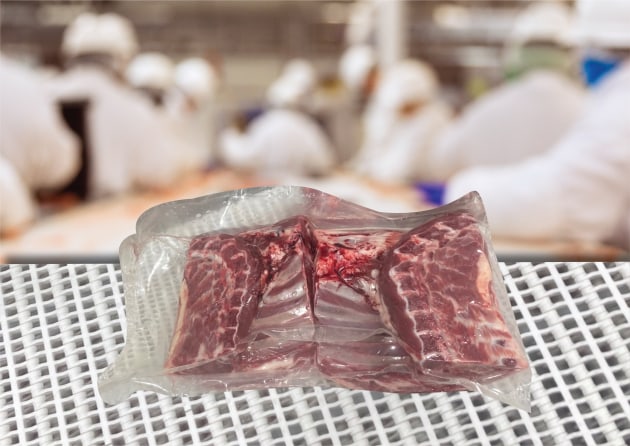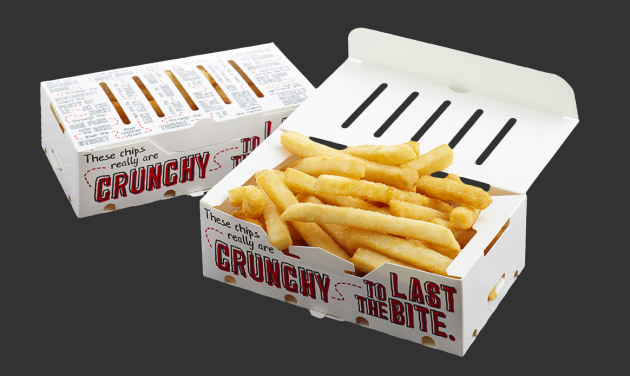The Packaging Innovation & Design Awards (PIDA) Save Food Packaging category recognises companies that are working to minimise or prevent food waste from paddock to plate using innovative and intuitive design features, all the while meeting global sustainable packaging targets.
MC for the PIDA 2021 event, publisher of media partners Food & Drink Business and PKN Packaging News, Lindy Hughson, said: "Food waste is a hot button topic, we Australians waste around 7.3 million tonnes of it every year. All of this has a significant economic and environmental impact. So, food manufacturers and packaging technologists alike are hard at work to prevent food waste from farm to fork."
A Certificate of Merit – Retail has been awarded to Simson's Pantry Wraps (True Foods and Result Group), while a High Commendation – Retail has been awarded to George Weston Foods (OF Packaging).
The Bronze award for Retail went to Southern Fresh Foods (NAVI Co Global).
This year, the judges decided to award two Silvers instead of a Gold, with the awards going to Junee Lamb (Junee Lamb and Sealed Air for CRYOVAC brand Total Bone Guard) for Agriculture and Edgell Supa Crunch (Simplot Australia) for Food Service.
The citation for the Junee Lamb packaging explained that meat products ending up in landfill contributes to over 20 per cent of the carbon footprint of total food waste. An additional issue for meat products is leaking packs, which causes unnecessary food and water wastage.

Products sent from Junee Lamb were arriving damaged at the next point in the supply chain and non-conformance reports indicated that lamb packaged in previous shrink bags were failing and yielding food waste in the order of 4300kg per week.
The significant volume of water required to produce the defective product was also being wasted in the previous packs. The move to the Cryovac Total Bone Guard (TBG) put an end to leaking packs, food and water waste for Junee Lamb.
The vacuum shrink barrier bags are designed to provide a significant shelf life of 90 days. This is particularly important for the export market where long chilled shelf life is required.
The design provides tough puncture, tear and abrasion resistance, high oxygen barrier properties, with built-in bone guard protection in areas that need it most. By identifying the areas of the bag at risk of puncture/abuse (based on cut packaging), bone guard can be purposefully positioned on the bag to protect these areas.
The 150um bone guard patch ensures the efficient use of materials while delivering maximum protection and shelf life. The lamb will better withstand the rigours of production, storage, and distribution and that also means less waste.
In this B2B application, multiple (up to six) meat cuts are packed into Cryovac TBG vacuum shrink barrier bags driving better product: packaging ratio and decreasing the amount of packaging used. The bag is Australasian Recycling Logo (ARL) compliant and recyclable through soft plastics collection programs.
Receiving the award, account manager of Sealed Air, Paul Parker (pictured below) said: "It's an honour and just shows that the partnership with Junee is delivering sustainable outcomes for our fresh protein sector. Saving food is at the heart of the Cryovac brand, and the TBG bag has enabled us to be able to achieve that by entire use performance."

The second Silver award winner, Simplot, developed Edgell Supa Crunch, a new chip designed to stay crunchy for up to 40 minutes throughout the challenging delivery process to meet the needs of the foodservice channel.

To complement and aid maintaining the crunch during delivery, Simplot designed an innovative and sustainable pack that has a raised and ventilated floor and just the right amount of ventilation on the sides and top to allow steam condensate to escape while retaining heat.
This pack utilises the stack effect where air is drawn into the carton at the base and then vents at the top of the carton allowing moisture filled air from the chips to rise and escape. The relatively shallow carton is designed to allow the chips to spread out, so they are not on top of one another. The one-way venting that the stack effect promotes works well in balancing heat retention and moisture escaping, promoting quality for food delivery.
The product has instructions on the pack as to how to use it, and how to effectively extend the life of the chips to keep hot and crispy and therefore not wasted. This product has been designed to extend the life of the product through keeping the product crispy and hot.
If the customer finds that the product has cooled too much,the packaging has been designed in a way that it can be reheated in a microwave for 20 seconds, which extends the life of the product reducing the risk of spoilage due to cold soggy chips.
The pack was designed with tamper evidence for product security and is stackable allowing for easier distribution of bulk product and reducing the risk of crushing.The board is fully recyclable, FSC certified and has been optimised to reduce the amount of board used.
Receiving the award, packaging development manager of Simplot, Ian Hayes (pictured below), said: "It's really exciting to look back at the work we did with Detpak on developing this pack. It's a great innovation of the product and pack coming together to make such a wonderful experience for the consumer."

Coordinated by the Australian Institute of Packaging, the annual PIDA Awards program recognises companies and individuals who are making a significant difference in their field across Australia and New Zealand. Winners in the company awards announced today are automatically eligible for entry into the 2022 WorldStar Packaging Awards competition.
Four other categories were announced on Day Two:






